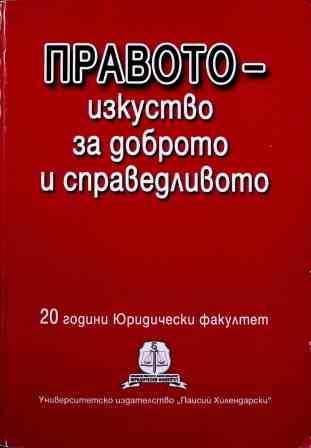Проблематичната двойственост на режима на защита на правата на човека в ЕС след Лисабон
The Problematic Duality of the Human Rights Protection Regime in the EU post Lisbon Treaty
Author(s): Atanas Semov
Subject(s): Law, Constitution, Jurisprudence, International Law, Human Rights and Humanitarian Law
Published by: Пловдивски университет »Паисий Хилендарски«
Keywords: treaty of Lisbon; fundamental rights; human rights; charter of fundamental rights; protection; European convention on human rights; dualistic regime
Summary/Abstract: The Treaty of Lisbon had the difficult task of "reproducing everything important from the Constitution for Europe”. Two of the most significant innovations are related to the creation of the Union's own human rights regime within and for the needs of the integration union. This Union - unique in the power granted to it by its Member States - needed from its inception guarantees that this power would be exercised with respect for fundamental rights. The necessary legal framework was made too half-heartedly, as a result of heavy compromises. There is no doubt that both the entry into force of the EU Charter of Fundamental Rights as a primary legal source and the EU's accession to the European Convention on Human Rights (ECHR) are events of historic significance. These should be acts of decisive reinforcement of the effective protection of fundamental rights – and should contribute to achieving unity of mechanisms. But does the creation of the EU's own Charter of Fundamental Rights and the EU's accession to the ECHR contribute to 'unity' or, on the contrary, create a dualistic regime. The answer to this question today cannot be comprehensive. It requires first that the process of accession to the ECHR is finally completed, and then that relevant jurisprudence is accumulated which makes it possible to establish clearly whether 'unity' has been achieved or, on the contrary, whether the regime is dual and therefore problematic.
Book: Правото - изкуство за доброто и справедливото. 20 години Юридически факултет
- Page Range: 601-611
- Page Count: 11
- Publication Year: 2013
- Language: Bulgarian
- Content File-PDF

